automotive wire harness connectors type
Introduction
Wire harness connectors play a crucial role in the functioning of automotive electrical systems. Without them, it would be impossible to connect different electrical components and devices together, resulting in a complete breakdown of the vehicle's power transmission system. These connectors are specifically designed to ensure that power and signals can flow seamlessly throughout the entire vehicle. They are engineered with precision and care to withstand even the harshest conditions encountered on the road, including extreme temperatures, vibrations, moisture, and dust. In addition to their durability and reliability, wire harness connectors also offer flexibility when it comes to customization. They come in various shapes and sizes depending on specific requirements for each component or device they need to connect.
There are different types of wire harness connectors used in the automotive industry, each serving a specific purpose. Here are a few commonly used types:
1. Blade connectors
Blade connectors are a type of electrical connector that is highly versatile and widely used in various applications. These connectors feature flat metal blades or tabs that can easily slide into receptacles, allowing for the establishment of an efficient and reliable electrical connection.
One of the key advantages of blade connectors is their ease of use. They are incredibly simple to install, making them ideal for connecting lights, switches, sensors, and other electronic devices quickly and efficiently. Additionally, they offer excellent conductivity due to their large surface area contact points.
Blade connectors come in different shapes and sizes to suit specific applications. Some have straight blades while others have angled ones; some are designed for high-voltage applications while others work best with low-voltage systems. Regardless of the application requirements, there is always a suitable blade connector available.
Another significant advantage of blade connectors is their durability. Made from high-quality materials such as copper or brass alloys, these connectors can withstand harsh environmental conditions without losing their effectiveness over time.
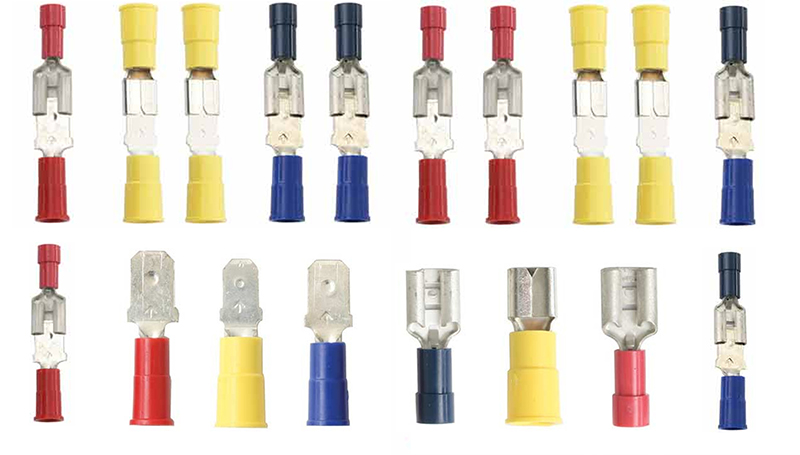
2. Pin connectors
Pin connectors are an essential component in the world of electrical engineering. They consist of a male pin and a female socket, which work together to create a secure and reliable electrical connection. The pins are carefully designed to fit perfectly into the socket, ensuring that there is no room for error or instability.
These connectors have become increasingly popular in recent years due to their versatility and reliability. They can be found in a wide range of applications, from engine control modules and sensors to various other electronic components.
One of the key benefits of using pin connectors is their ability to provide a strong and stable connection even under harsh conditions. This makes them ideal for use in environments where vibration, moisture, or extreme temperatures may be present.
In addition to their durability, pin connectors also offer excellent performance characteristics such as low resistance and high conductivity. This ensures that they can handle high levels of current without overheating or causing any damage.
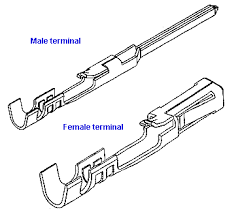
3. Circular connectors
Circular connectors are a type of electrical connector that boasts a cylindrical shape, with pins and sockets arranged in an efficient circular pattern. These connectors offer a secure and sealed connection, making them ideal for use in various applications where reliability is key. From automotive headlights to taillights, audio systems to industrial machinery, circular connectors have become ubiquitous across many industries.
One of the most significant advantages of using circular connectors is their ability to provide reliable connectivity even under harsh environmental conditions. They can withstand extreme temperatures, vibrations, and exposure to moisture or dust without compromising on performance. This makes them an excellent choice for outdoor applications such as marine electronics or aerospace equipment.
Another benefit of these connectors is their versatility - they come in different sizes and configurations depending on the specific application requirements. Some models feature locking mechanisms that prevent accidental disconnection while others may include shielding features that protect against electromagnetic interference (EMI).
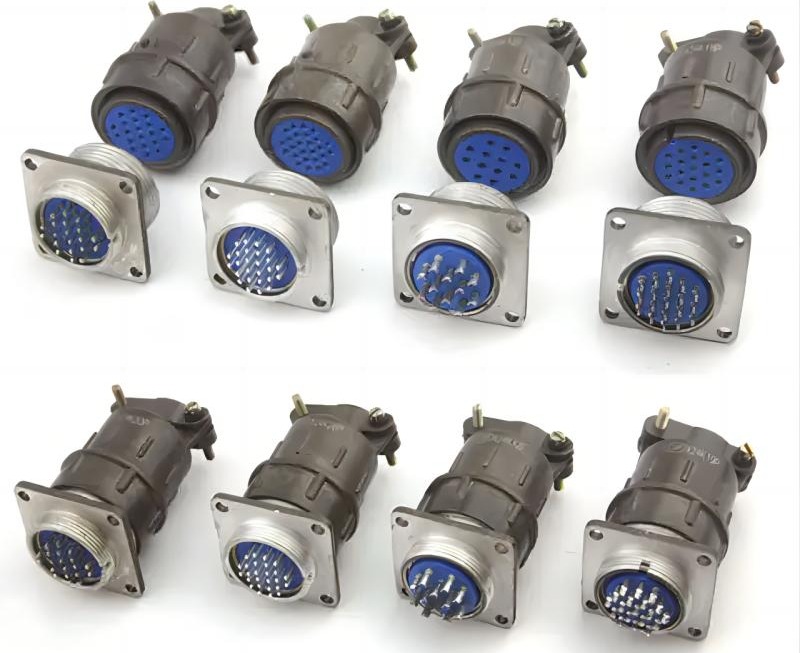
4. Weatherproof connectors
Weatherproof connectors are an essential component for any outdoor electrical application. These connectors are specifically designed to withstand harsh environmental conditions, such as moisture, dust, and extreme temperatures. They feature seals or gaskets that provide a watertight connection, ensuring the safety and reliability of your electrical system. Whether you're installing exterior lighting or working on engine compartments, weatherproof connectors offer superior protection against the elements. With their durable construction and advanced sealing technology, these connectors can handle even the toughest outdoor environments.
In addition to their practical applications in wiring harnesses for lighting and engines, weatherproof connectors also have a wide range of other uses. They can be used in marine applications to protect against saltwater corrosion or in industrial settings where exposure to chemicals is common.
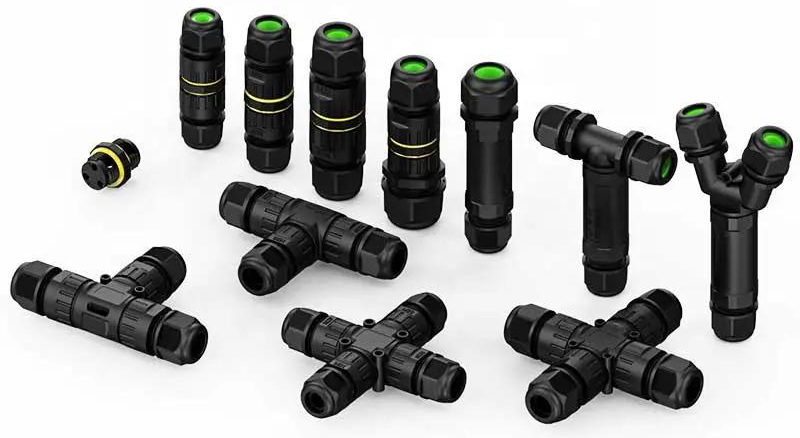
5. Terminal blocks
Terminal blocks are an essential component in electrical systems, providing a reliable and efficient way to connect multiple wires together. These ingenious devices consist of a series of metal terminals that are housed within a sturdy plastic or metal block. The beauty of terminal blocks lies in their simplicity - each wire is inserted into its own separate terminal and secured firmly in place. This allows for easy organization and maintenance of wire connections, making it simple to troubleshoot any issues that may arise.
Whether you're working on a complex industrial system or simply need to tidy up the wiring in your home, terminal blocks offer an ideal solution. They provide a secure connection point for all your wires, ensuring that they remain safely connected even under heavy loads or extreme conditions.
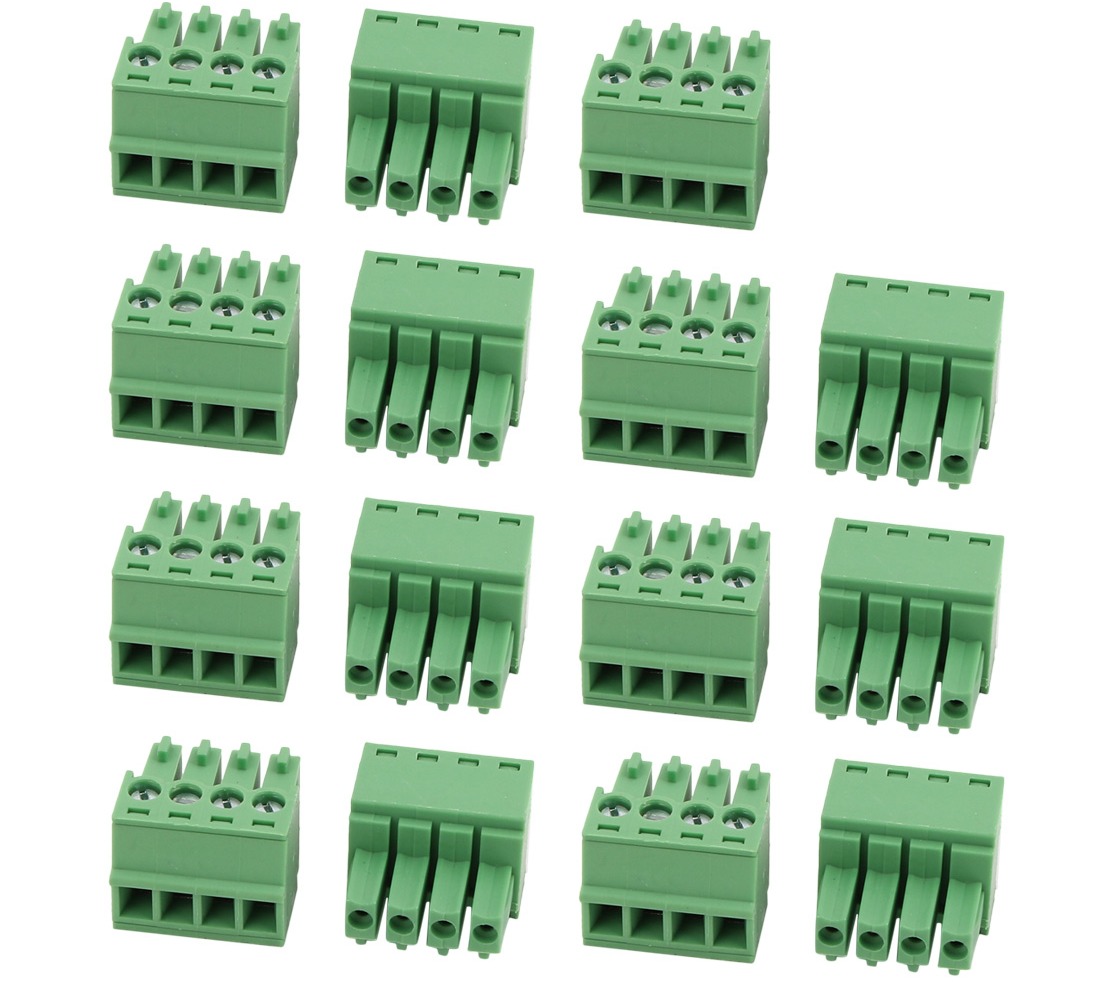
6. Crimp connectors
Crimp connectors are an essential component in electrical wiring systems, providing a secure and reliable way to join multiple wires together. These connectors consist of a metal terminal that is specifically designed to be crimped onto the stripped ends of the wires using a specialized crimping tool.
One of the key advantages of using crimp connectors is their ability to create strong and durable connections between wires. This is particularly important in applications where vibration or movement may cause traditional wire nuts or soldered connections to come loose over time.
There are several different types of crimp connectors available on the market today, each with its own unique design and application. Butt connectors, for example, are used when two wires need to be joined end-to-end without any additional branching. Spade connectors, on the other hand, feature a flat tongue-like shape that can be inserted into a corresponding female connector for easy installation and removal.
Ring terminals are another popular type of crimp connector that features a circular shape with an opening at one end. These terminals can be easily attached to screws or studs for secure grounding or power distribution purposes.
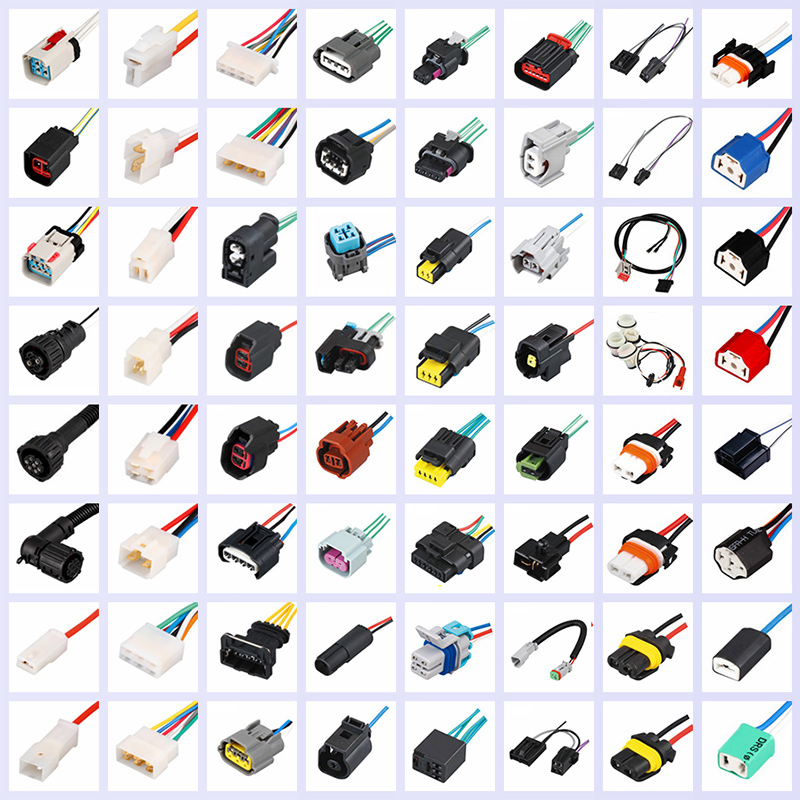
Wire harness connectors are an essential component in the automotive industry, providing a secure and reliable connection between electrical components. These connectors come in various shapes and sizes, each designed to meet specific requirements of the electrical system.
From simple two-wire connections to complex multi-pin configurations, wire harness connectors play a crucial role in ensuring that all vehicle systems function correctly. They are used for everything from powering headlights and taillights to controlling engine management systems.
Automotive manufacturers and suppliers offer a vast range of connector options, including crimp-on terminals, plug-in connectors, and soldered joints. Each type has its unique advantages depending on the application's needs.
The selection process for choosing the right connector can be challenging due to the diverse needs of modern vehicle wiring systems. Factors such as temperature resistance, vibration tolerance, and moisture protection must be considered when selecting a connector.
In conclusion, wire harness connectors are vital components that ensure the proper functioning of automotive electrical systems. With advancements in technology driving innovation within this field continually; we can expect even more sophisticated solutions to emerge over time.
